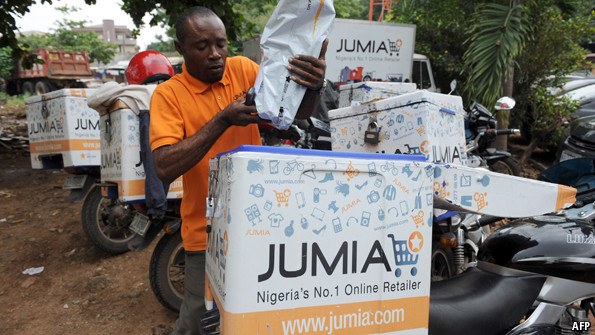By CultureBanx Team
- Jumia is closing its 60-person Dubai office and managers will move to countries in their region, with most going to Morocco, Kenya and Ivory Coast
- Jumia once valued at $3B, has now been knocked down to $474M
Jumia (JMIA +3.26%), known as the Amazon (AMZN -1.43 %) or Alibaba (BABA +4.79%) of Africa became the first major African tech company to go public in 2019 on the New York Stock Exchange and has since struggled. The company is now working on a profit push, starting with closing its 60-person Dubai office. Managers will move to countries in their region, with most going to Morocco, Kenya and Ivory Coast. The e-commerce company once operated in 14 African countries, and previously held a $3 billion valuation, has now been knocked down to a $474 million market cap.
Why This Matters: The company’s earlier strategy of prioritizing growth over profits had been backfiring with its Co-CEOs and Jumia founders leaving the company last month. The e-commerce giant has told investors it has a target of attaining profitability by 2022, which seems a bit out of reach, but still plausible. In Jumia’s Q3 earnings, revenue grew 18.4% year over year to $50.5 million amid a spike in commissions, advertising, and value-added services such as logistics. Investor appetite remains questionable considering the company’s persistent financial losses in its core markets. Jumia has seen its stock price decline steeply down more than 65%.
As part the company’s return to profitability laid out in its latest earnings report enhancing Jumia’s overall business focus is a top priority. Also, enhancing e-commerce delivery, cost-cutting measures, implementing a diversified monetization model and lastly, prioritizing its fintech subsidiary JumiaPay.
Delivering Concern: Early major investors like Rocket Internet, which sold its 11% stake in the company gave other investors pause for concern. Mastercard (MA -0.21%) invested $56 million in Jumia’s private stock sale ahead of the IPO, which is now only worth a fraction of that. Not to mention Citron Research called out the company during its first post-IPO earnings report in 2019, with claims of fraud and “material discrepancies” in its S1 filing. Just a few months after that, Jumia disclosed it had wrongly inflated its order volume by around $17.5 million due to some fraudulent orders, even though executives stated they had no impact on financial statements.
It wasn’t always gloom and doom for Africa’s former unicorn and they’ve made some strong partnership strides. UPS will take advantage of the 3,000 drop-off and pick-up points that Jumia has built across its markets in Africa, to ensure its users get their packages directly delivered to their front door. Digital trade will add $180 billion to Africa’s economy by 2025 according to UNDP, and such partnerships could become a significant part of Jumia’s strategy as more global companies look to make inroads into the continent.
What’s Next: Perhaps comparing Jumia to Amazon, or to the likes of Alibaba is a bit mis-guiding, given that the U.S. and Chinese juggernaut at comparable points in time were always more profitable and growing faster than the Pan-African company. Also, Jumia has continued to face an identity crisis since the company was incorporated in Germany, headquartered in Dubai, all while defining itself as African. Its search for a permanent CEO is ongoing. Additionally, Amazon is planning to expand its e-commerce service into some of the larger African markets as soon as next year, according to Bloomberg.
CBx Vibe: “Lost” Frank Ocean









